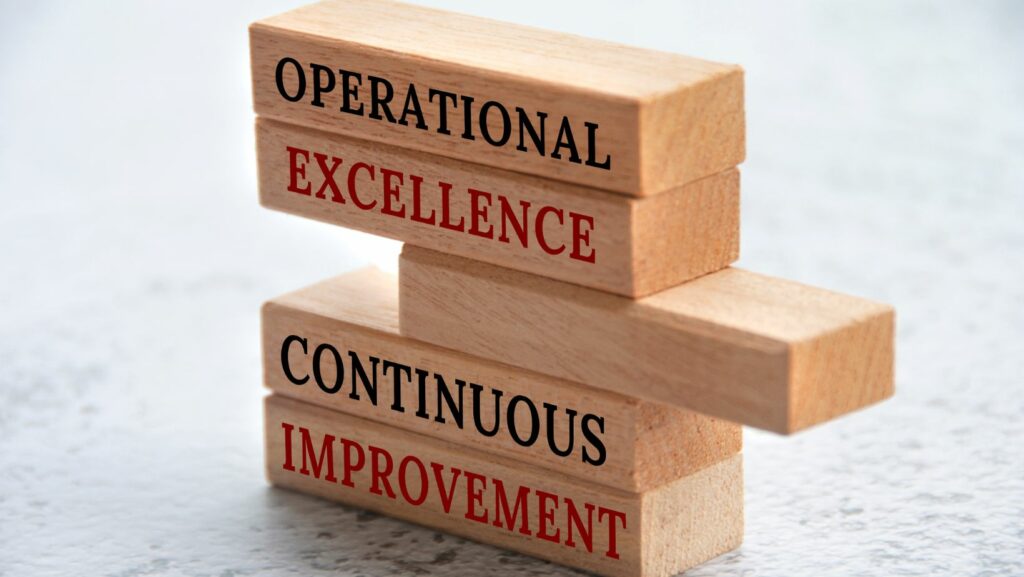In the fiercely competitive world of business, achieving excellence isn’t just a goal, it’s a necessity. It’s the golden ticket to standing out, gaining customer loyalty, and ensuring long-term success. But what exactly is “business excellence” and how can businesses unlock its potential?
Business Excellence

Business excellence rests on certain essential principles. These guiding ideologies lay the foundation for businesses striving to reach the pinnacle of their potential.
- Focus on Customer: Premier on the list, it’s all about the customer. Businesses that prioritize customer satisfaction tend to have a competitive edge. Industries like aviation, hospitality, and e-commerce, for instance, are customer-centric and do their utmost to meet the clients’ needs.
- Leadership and Constancy of Purpose: Establishing a clear vision and mission bind a company together, with a focus on the longer-term objectives. These principles exhibit their effectiveness in companies like Apple and Amazon, where robust leadership steered them towards unprecedented success.
- People Development and Involvement: Ensuring employees’ welfare and professional growth further stems business excellence. Google and other leading organizations have demonstrated this by fostering a culture of openness and continuous learning.
- Process-driven Approach: Adopting streamlined, efficient procedures defines the workflows. Businesses like Toyota with its Lean Manufacturing approach are poster children for this principle.
- Continuous Improvement and Innovation: Businesses must remain ever-evolving and innovative to thrive in the dynamic market environment. Tech giants like Microsoft embody this principle with their persistent updates and product innovation.
- Partnership Development: Businesses often prosper by cultivating strong relationships with stakeholders, evidenced by companies like Starbucks and their successful supply chain partnerships.
These principles operate cohesively within frameworks such as EFQM Excellence Model or Baldrige Performance Excellence Program. These models use scientifically developed criteria to enable comprehensive assessments of business performance, aiding companies in challenging, improving, and innovating their way to the top.
Key Elements of Business Excellence

Achieving business excellence hinges on key factors. Leadership is a crucial element, driving the organization’s vision and fostering a culture of excellence. Leaders define, articulate, and implement the strategic direction while motivating the workforce. Apple’s leadership, for instance, promotes a culture of innovation that’s recognized worldwide.
Another critical factor is Customer Focus. Organizations like Google excel because they prioritize the needs and expectations of customers, striving to deliver elevated customer experiences. Insightful analysis of customer behaviors, industry trends, and competition is a common characteristic of these businesses, strengthening their market position.
Workforce Engagement also contributes significantly to business excellence. TikTok, for example, nurtures its energetic young workforce, nurturing them to drive business goals. Satisfied employees are more productive, improving overall organizational performance.
Businesses must also adopt an ethos of Continuous Improvement. As exemplified by Toyota, this focus on improvement allows for the development of efficient and effective processes, leading to higher product quality and reduced waste.
Impact of Business Excellence on Performance

Business excellence exhibits a pronounced impact on performance. A salient example includes increased productivity. Companies like Apple and Google demonstrably increase their output and efficiency through strategies aligned with business excellence principles. Next, a noteworthy instance involves improved customer satisfaction. Successful companies, Amazon and TikTok included, place considerable emphasis on their customer interactions, leading to enhanced customer loyalty and satisfaction.
Elevation in market share stands as another significant impact, corporations like Toyota and Apple bolster their position in the market by driving their operational procedures and strategies towards business excellence models. Additionally, business excellence aids in fostering an innovative culture. Companies, Google for instance, thrive on their culture of continuous improvement and innovation, thereby increasing their competitive advantage.
Notably, the application of business excellence frameworks such as EFQM Excellence Model and Baldrige Performance Excellence Program facilitate these impacts. They provide a structured approach towards improved performance, offering guidance on incorporating principles of business excellence in various operational aspects. Thus, business excellence directly influences performance, creating companies that are highly competitive, innovative, and successful.

